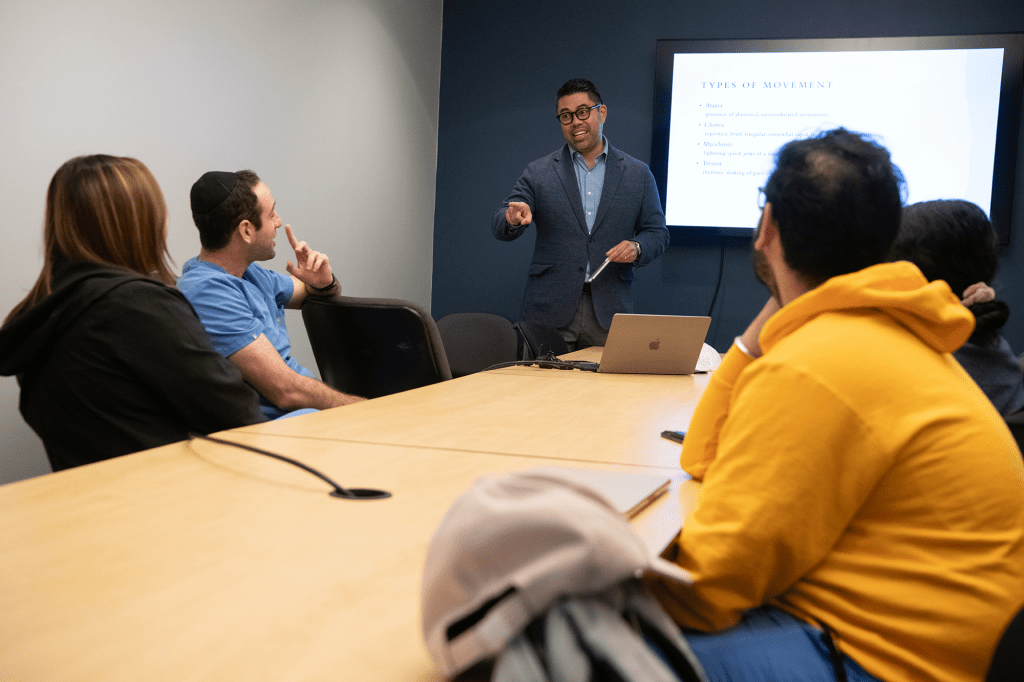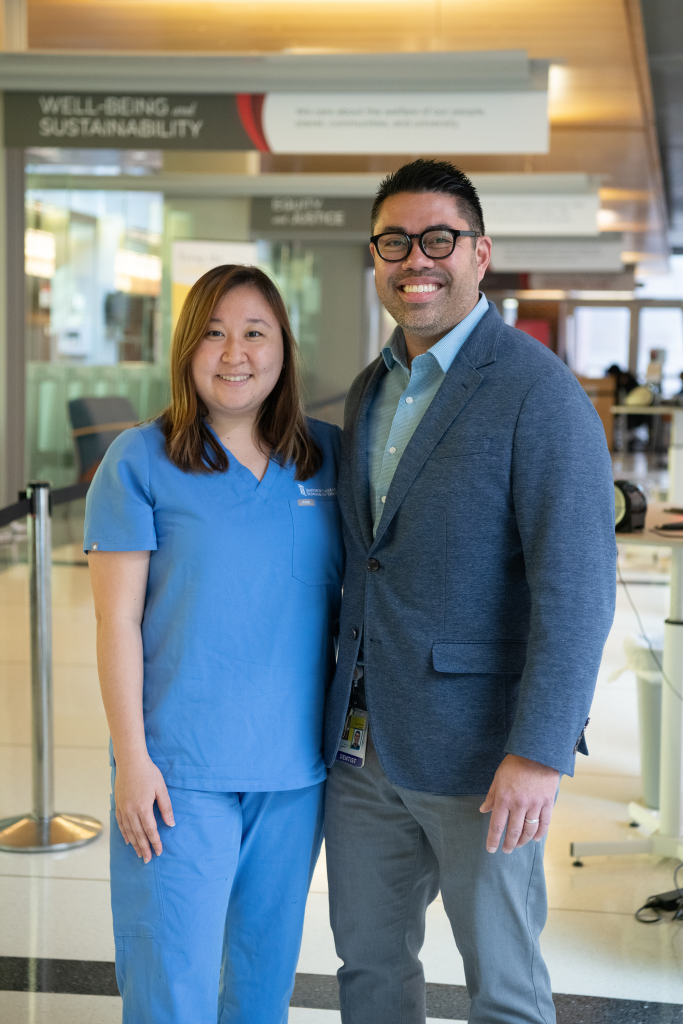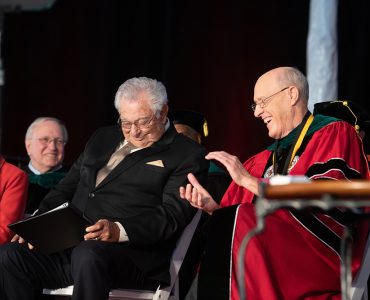
It was the night before an exam, and a dental student emailed Glenn Canares, DDS, MSD, a common occurrence among students and instructors at the University of Maryland School of Dentistry (UMSOD). But it was the content of the email that was uncommon.
“She shares with me that she’s listening to my lecture on children with special health care needs. And she’s in tears,” said Canares, clinical assistant professor and director of UMSOD’s Advanced Specialty Education Program, Division of Pediatric Dentistry, and an advocate for the role of kindness in teaching.
The writer was Rachel Chang, DDS ’23, then a third-year student who told Canares that his showing deep respect for people like her brother, who has Down syndrome, was a first for her in academia. The lecture had conveyed the value that Canares places on making personal connections — with patients, students, and colleagues.
Hers were happy tears.
“I was moved,” recalled Canares, who spoke about their interactions during a recent speech. “And it could have ended with just that.”
Instead, he wrote a thoughtful reply that Chang received after the exam and still keeps on her phone nearly two years later.
“He reciprocated in such a kind and generous way,” she said. “Clinicians talk about different diseases, different conditions, and it becomes a list. But for him, he focused on the person, the story behind it. And that’s why I felt so connected to him.”
Canares became her mentor, providing resources in what he called a spirit of openness. “It’s that openness, not necessarily saying, ‘You need to do pediatric dentistry,’ but showing what we do, who we are, what we do as a specialty. That’s what kind of led her there,” he said.

Transforming Student’s Life
Chang, 26, chose pediatric dentistry and decided to stay at the University of Maryland, Baltimore (UMB) for her postdoctoral education. In July, she began her dental school residency. And in September, Canares spoke at the UMB Faculty Convocation, describing “a spark of kindness that would transform Rachel’s life.”
He exhorted colleagues to make compassionate behavior a routine. “Because when we practice kindness, it creates belonging,” he said. “And when we feel like we belong, we connect more with our work. Then we attract and retain the best people rather than being at risk to lose them. We move from being told, ‘You’re a good teacher,’ to being told, ‘You changed my life.’ ”
Canares’ teaching prowess was noted by the UMB Leaders in Education: Academy of Presidential Scholars (LEAPS) when he won a 2023 LEAPS Distinguished Educator award as outstanding preceptor.
He simultaneously strives to excel as a public speaker, saying, “It allows me to share my unique point of view to help make a positive difference in the world.”
Nice vs. Kind
In promulgating kindness, Canares makes a distinction between being nice and being kind. He defines the first as self-serving behavior intended to please others, while genuine kindness is outwardly directed.
Canares, 44, was a teenager in New Jersey when he perceived the difference.
“Typically, teachers would be ‘nice’ and do the thing where everyone who tries out for a sport or in gym class gets an opportunity to play. In these moments, I felt like a charity case and didn’t belong. Mr. [Ron] DeVito was different because he showed me kindness for the first time.”
Canares had been bullied and had low self-esteem until Coach DeVito broke precedent by allowing him and other non-athletes to join the weightlifting club. “I felt a sense of belonging as long as I put the work in,” Canares said. “It was the key to developing healthy self-esteem and belief in myself. All sparked by kindness.”
One evening in 2017, Canares vowed to turn kindness into a personal quest. He’d had an angry outburst, and his wife persuaded him to stop overreacting when his daughter pouted. He began performing acts of kindness and explored its use in teaching.
That same year, Canares left private dental practice to join UMSOD’s pediatric department. He was attracted by its encouraging culture and by the University’s core values, including accountability and civility.
In 2021, UMB updated its core values. Two new ones — Respect and Integrity — evolved from accountability and civility. How to implement these? Canares suggested kind interactions when interviewed on the UMB podcast “Moving the Needle.” With faculty, share a research opportunity. With students, gauge receptiveness by asking, “Are you ready to receive feedback?” With either, connect them with a mentor.
Being mentored was pivotal for Chang. She had been uncertain about her career direction, saying, “There’s so much that goes into pediatric dentistry.” Of Canares, she said: “He was more than willing to help me every step of the way.”



